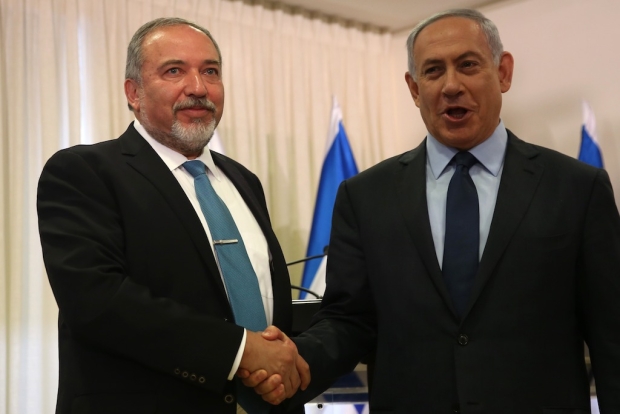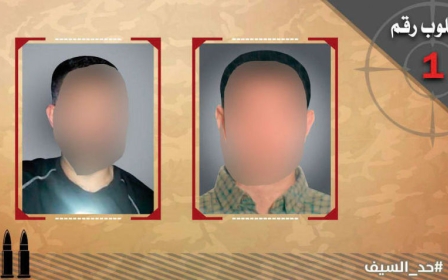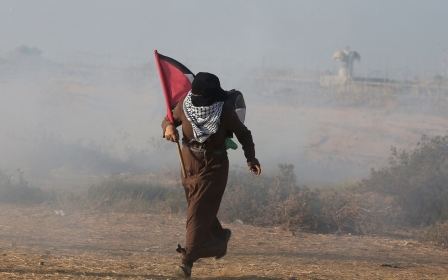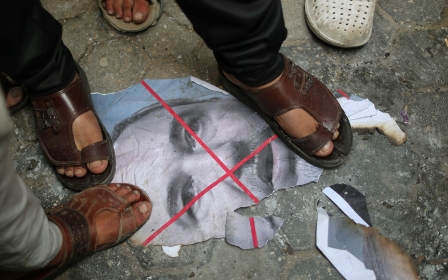Unease and apprehension lie over Gaza following Israeli truce
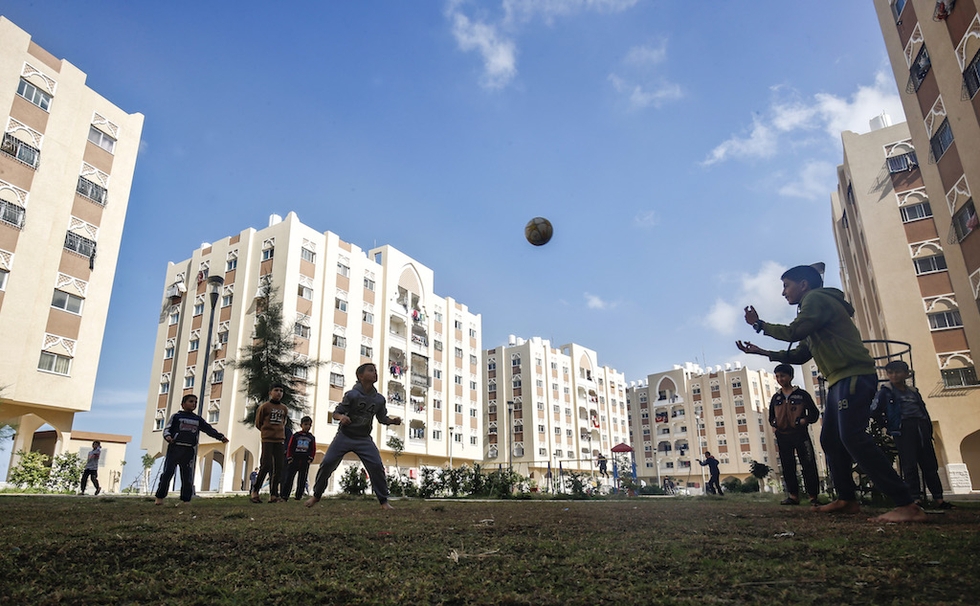
GAZA CITY, Gaza Strip - During the day, the streets of Gaza are crowded, with the shouting of vendors and honking of cars all indicating that the devastated city is determined to move on after weeks of escalation and tension which almost led to a full blown war.
Two days of intense fighting last week saw 400 rockets and mortars fired into Israel while Israeli planes bombed 100 sites. 15 Palestinians and an Israeli soldier were killed in the violence.
Abu Adli al-Muzanar, owner of a well-known sweet shop in Gaza city, sold a number of sweets after the escalation ended last week. Residents bought sweets in celebration of the ending of the Israeli escalation.
“I hope I don’t sell more sweets in the coming days. Every period of perseverance is followed by immense pain,” says Muzanar.
He told Middle East Eye he didn't feel secure about the current lull.
"The sound of Israeli surveillance drones doesn’t leave the sky and forebodes ill tidings.”
Muzanar also expresses his fear of a sudden attack similar to that of December 2008, when Israel had launched a massive attack after nominally making a truce with the factions.
“I’m afraid to wake up to a gruesome catastrophe like that of 2008, especially in light of the threats made by Israeli officials and amidst the rage persisting among Israelis who are disappointed at their loss in the last round of escalation.”
A ceasefire with Hamas ended the worst violence between Israel and Palestinian militants in Gaza since the 2014 war that left more than 2,200 people dead - the overwhelming majority of them Palestinians.
'The resistance has powerful cards and messages, which will sway Israel from launching a new attack'
- Hussein Mansour, PFLP leader in Gaza
Last week's deal led Israeli Defence Minister Avigdor Lieberman to resign in disagreement as he branded the deal as “surrendering to terrorism”, almost forcing Prime Minister Benjamin Netanyahu into an early election.
Despite the moves to prevent further escalation, Palestinians have been left with a sense of unease.
Abu Hadi, the owner of a supermarket on al-Nasir street in Gaza City, said he felt the current calm was deceiving.
“A confrontation could break out at any time. Didn’t you hear that the resistance has spoken of capturing a group of spies and has published pictures of Israelis who are wanted?" he said, referring to pictures of Israeli "fugitives" put out by Hamas.
"Israel won’t abandon its spies and men and we fear it will launch an attack to protect them."
The last round of escalation started the evening of 11 November when a number of Hamas fighters discovered an Israeli special forces unit that had infiltrated three kilometres into east Khan Younis.
The two sides opened fire, leading to the killing of an officer of the special forces unit. Israeli warplanes then intervened and killed seven Palestinians.
Following this incident, Palestinian factions fired scores of rockets into Israeli cities bordering Gaza. Hamas' al-Qassam Bridgades released a video showing the targeting of a bus carrying Israeli soldiers near the Gaza separation fence using a Kornet missile.
Israel then launched dozens of air strikes on Gaza, killing at least seven Palestinians. One more Palestinian - a West Bank resident who was in southern Israel - was killed by a rocket attack from the Gaza Strip.
After the escalation ended, a number of Israeli officials issued statements that reinforced the apprehension among the Palestinians. Netanyahu stated, following a meeting with Likud: “The security status is complicated. We are in a wide-scale battle that hasn’t ended yet. I won’t declare how or when we will act. There are intentions to continue. I don’t wish to disclose what I plan to do in the near future.”
Parliamentarian Yoav Galant also stated: "We must settle the tab with Yahya al-Sinwar, the leader of Hamas in Gaza. It’s only a matter of time. This man will not be a hero.”
Conversely, Palestinian factions have warned that they are prepared for any assault from Israel.
"The Palestinian factions have delivered enough messages," said Hussein Mansour, a leader in the Popular Front for the Liberation of Palestine (PFLP). "The joint military room, which was established a few months back closely follows up things on the ground and evaluates steps to be taken.
“The joint military room has information, tools and powers which make it fully ready to confront any sudden attack against the Gaza Strip. The resistance has powerful cards and messages which will sway Israel from launching a new attack.”
Adnan Abu Amer, a researcher in Israeli affairs, told MEE: "The popular pressure in Israel on Netanyahu's government could push him towards a limited military operation against Gaza.”
"The pictures of the bus burned by a Kornet missile, the Asqalan [also known as Ashkelon] building destroyed by a Gaza rocket, and settler demonstrations in Sderot will be highlighted in the reels in the campaigns of Israeli opposition parties in the upcoming elections."
"It is difficult for Israel to sign a ceasefire agreement with Gaza with the last mental picture being the burned bus and destroyed building."
Not a priority
Haidar al-Musaddar, a researcher, said the situation in Gaza was not a military priority for Israel because the Israeli government has other strategic files on its agenda.
Speaking to MEE, Musaddar said he believed Israel's unwillingness to attack Gaza was linked to a desire to improve relations with a number of Arab countries, including Saudi Arabia.
Forging new alliances such as these would be a strategic achievement for Israel economically, politically and in respect of altering these governments' positions in Israel's favor.
He said that Israel's containment policy regarding Gaza was focused on two options: Violent containment through a precise military operation to destroy command and control structures in Gaza followed by a decade of quiet - or an economic route funded by Egypt, Qatar, and the UN.
He said Israel was still evaluating both options - but popular demands and a new election might sway it towards the military option.
New MEE newsletter: Jerusalem Dispatch
Sign up to get the latest insights and analysis on Israel-Palestine, alongside Turkey Unpacked and other MEE newsletters
Middle East Eye delivers independent and unrivalled coverage and analysis of the Middle East, North Africa and beyond. To learn more about republishing this content and the associated fees, please fill out this form. More about MEE can be found here.


